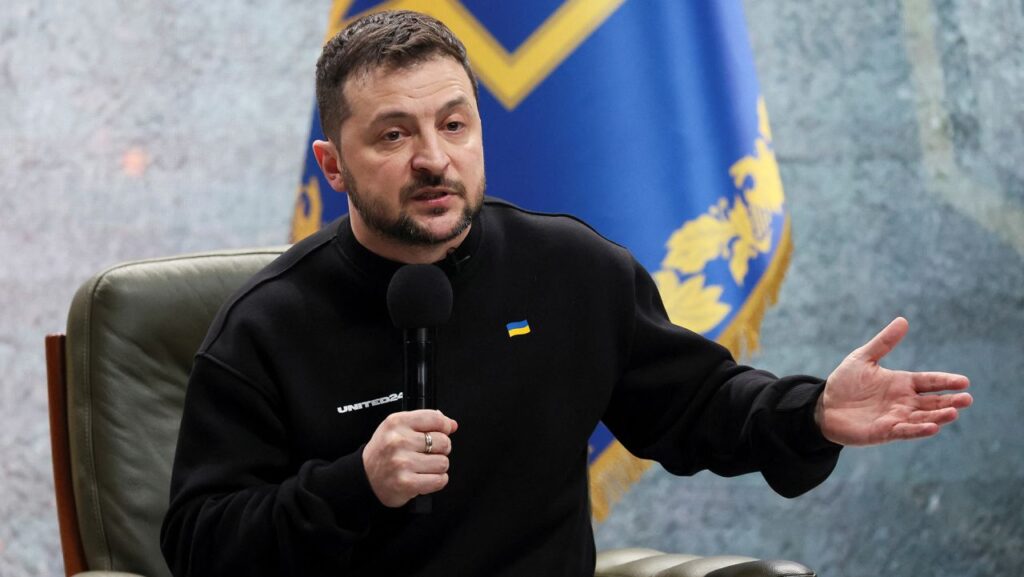
Ukrainian President Volodymyr Zelenskyy has publicly responded to reports that the United States, the United Kingdom, and France have agreed to support limited missile strikes on Russian military targets. The move marks a pivotal shift in Western nations’ stance amid the ongoing conflict, signaling increased support for Ukraine’s efforts to counter Russian aggression.
Zelenskyy: “A Step Toward Justice”
Speaking at a press briefing in Kyiv, Zelenskyy called the decision a “step toward justice and accountability,” emphasizing that targeted strikes on Russian military infrastructure are necessary to weaken Moscow’s ability to wage war. “For too long, the aggressor has operated with impunity,” Zelenskyy said. “This measured support is a message that the free world will not tolerate acts of terrorism and war crimes.”
Zelenskyy expressed gratitude to Western allies for their continued support, framing the approval for missile strikes as a defensive measure aimed at protecting Ukrainian sovereignty. He reiterated Ukraine’s commitment to ensuring any strikes are precise and in compliance with international law, targeting only military facilities directly linked to the ongoing conflict.
The US, UK, and France have justified their decision as a response to Russia’s continued attacks on civilian infrastructure and violations of international norms. Officials from the three nations stressed that any strikes must adhere to strict guidelines, avoiding civilian casualties and maintaining proportionality.
A spokesperson from the UK Ministry of Defence commented, “This is not an escalation but a necessary response to ensure Ukraine can defend itself effectively against unprovoked aggression.” The US echoed this sentiment, emphasizing that its support is conditional on transparency and accountability in how the strikes are conducted.
Moscow has reacted angrily to the announcement, accusing Western nations of escalating the conflict and crossing “red lines.” The Russian Foreign Ministry issued a statement warning of “serious consequences” if missile strikes are carried out on its territory, framing the decision as a direct challenge to its national security.
Russian state media has also amplified rhetoric about the West’s involvement, claiming it is further evidence of NATO’s proxy war against Russia.
Implications for the Conflict
The decision by the US, UK, and France marks a turning point in international involvement in the conflict. Analysts suggest it could significantly impact the balance of power on the battlefield, allowing Ukraine to disable key logistical hubs, weapons depots, and command centers deep within Russian territory.
However, the move is not without risks. Critics argue it could provoke a dangerous escalation, with Russia potentially retaliating against Western nations or expanding its offensive in Ukraine.
Zelenskyy’s Call for Unity
In his remarks, Zelenskyy called for continued unity among Western allies, urging them not to waver in their support. “This is not just a fight for Ukraine—it is a fight for freedom, democracy, and the principles that unite the civilized world,” he said.
Zelenskyy also addressed the Ukrainian people, assuring them that the government remains committed to achieving victory and rebuilding the nation. “Together, with our allies and the resilience of our people, we will prevail,” he stated.
The approval for missile strikes represents a significant escalation in international involvement, raising the stakes for all parties involved. As Ukraine prepares to implement this new strategy, the world watches closely, knowing that the decisions made now could shape the course of the conflict—and global geopolitics—for years to come.




